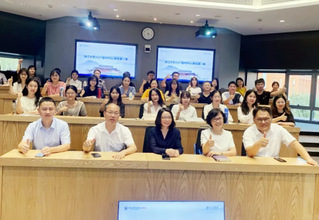The virtue of “control freak”: Rethinking destructive leadership
报告人:黄旭教授,香港浸会大学
主持人:谢小云教授,体育外围平台APP领导力与组织管理学系
时 间:2016年12月9日(周五)下午13:30-15:30
地 点:体育外围平台APP302会议室
报告人简介:
Prof. Huang is a Professor at the Department of Management, Hong Kong Baptist University. His research interests include empowerment, leadership, employees’ well-being and emotions, cross-cultural organizational psychology, and management issues in China. He serves as senior editor for Asia Pacific Journal of Management, and editorial board member for Academy of Management Journal, Management and Organization Review, and Human Relations. He has published articles in top tier journals, such as Academy of Management Journal, Journal of Applied Psychology, Journal of International Business Studies, Journal of Management.
Abstract:
In this talk, I will critique the current research on destructive leadership behaviour and challenge the practicality of this line of research. Then, I will argue why research on authoritarian leadership may open up a new avenue of scientific inquire of the functionality of destructive leadership. Finally, I will present a series of our studies which were aimed to advance our understanding of the “social function” of authoritarian leadership and its potentially beneficial impacts on employee, group, and organizational performance. My central contention is that research on authoritarian leadership can offer greater insight into the function of leaders for organizations. I argue that authoritarian leaders are “control freaks”, who tend to demand absolute obedience from their subordinates through coercion and punishment. Research has so far demonstrated that authoritarian leadership has negative effects on employees’ attitudes and performance. However, this style of leadership has been widely observed in organizations and considered by practicing managers as effective in ensuring higher performance. In our studies, we have theorized and demonstrated why, when, and how the “virtue” of authoritarian leaders can be materialized in organizations.
欢迎感兴趣的老师和同学参与研讨。






